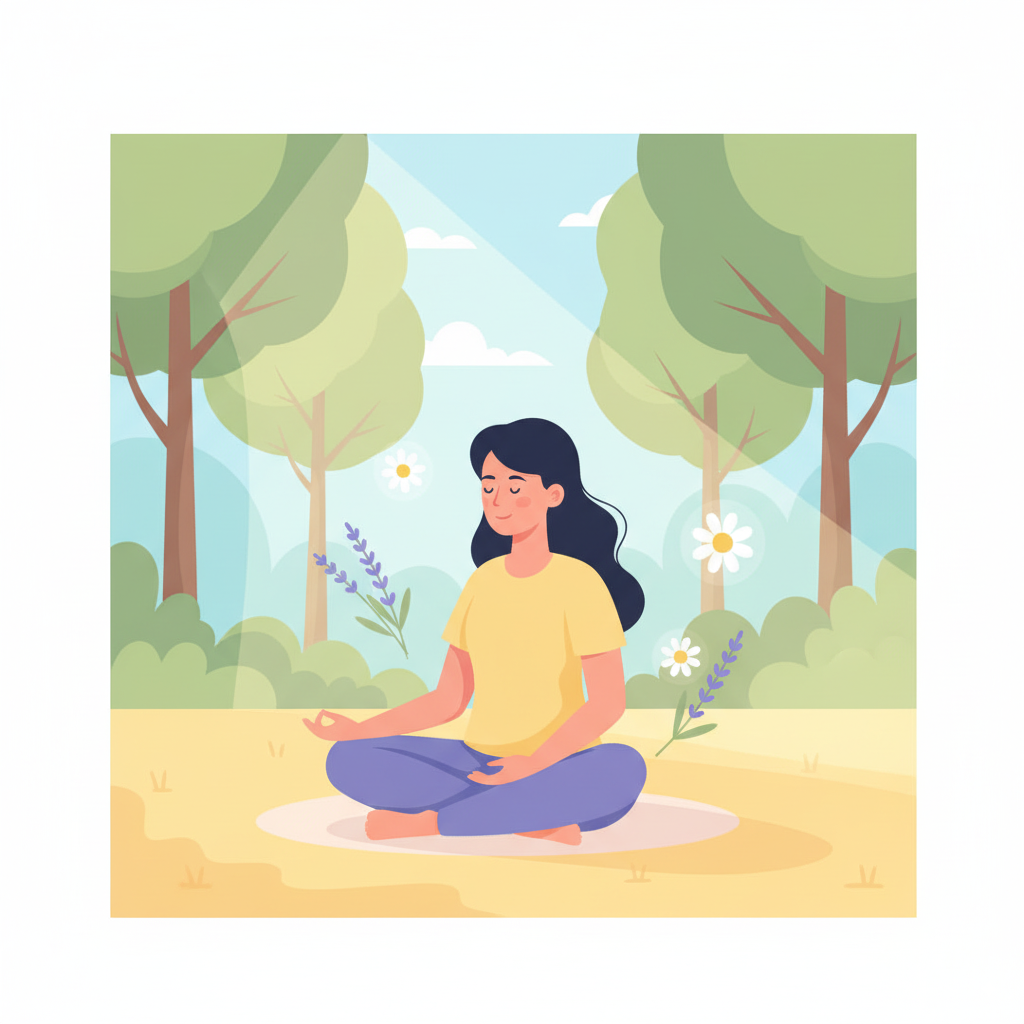
🌿 Managing Mild Anxiety Without Medication: A Holistic Guide
Anxiety is a common experience that affects many people, but it doesn’t always require medication to manage. With the right lifestyle changes, natural remedies, and mindful practices, you can significantly reduce anxiety symptoms and improve your overall well-being.
🧘♀️ Understanding Mild Anxiety
Mild anxiety is characterized by feelings of unease, worry, or nervousness that can occur in response to everyday stressors. While it can be uncomfortable, it’s often manageable without medication. Recognizing the signs and understanding the triggers is the first step toward effective management.
🌱 Natural Remedies to Alleviate Anxiety
1. Herbal Supplements
- Chamomile: Known for its calming effects, chamomile can help reduce anxiety symptoms.
- Lavender: Aromatherapy with lavender oil has been shown to decrease anxiety levels.
- Ashwagandha: This adaptogenic herb may help lower stress and anxiety by balancing cortisol levels.
2. Aromatherapy
Using essential oils like lavender, bergamot, and sandalwood in a diffuser or during a massage can promote relaxation and reduce anxiety.
3. Magnesium Supplements
Magnesium plays a role in regulating neurotransmitters that control mood and stress responses. Deficiency in magnesium has been linked to increased anxiety levels.
🏃♀️ Lifestyle Changes to Manage Anxiety
1. Regular Physical Activity
Engaging in regular exercise, such as walking, yoga, or swimming, can help reduce anxiety by releasing endorphins and improving sleep quality.
2. Balanced Diet
Consuming a diet rich in fruits, vegetables, whole grains, and lean proteins can support brain health and reduce anxiety. Foods high in omega-3 fatty acids, like fatty fish, may be particularly beneficial.
3. Adequate Sleep
Prioritizing quality sleep is crucial for mental health. Establishing a regular sleep routine and creating a restful environment can help alleviate anxiety symptoms.
🧘♂️ Mindfulness and Relaxation Techniques
1. Deep Breathing Exercises
Practicing deep breathing techniques, such as diaphragmatic breathing, can activate the body’s relaxation response and reduce anxiety.
2. Meditation and Mindfulness
Engaging in mindfulness practices, including meditation and guided imagery, can help you stay present and manage anxious thoughts.
3. Progressive Muscle Relaxation
This technique involves tensing and relaxing different muscle groups to reduce physical tension associated with anxiety.
🛀 Self-Care Practices
1. Engage in Enjoyable Activities
Participating in hobbies or activities you enjoy, such as reading, gardening, or spending time with loved ones, can provide a distraction and improve mood.
2. Limit Stimulants
Reducing the intake of caffeine, nicotine, and alcohol can help prevent exacerbation of anxiety symptoms.
3. Social Support
Connecting with friends, family, or support groups can provide emotional support and reduce feelings of isolation.
🧠 Cognitive Strategies
1. Challenge Negative Thoughts
Identifying and reframing negative thought patterns can help reduce anxiety. Cognitive Behavioral Therapy (CBT) techniques are particularly effective in this regard.
2. Set Realistic Goals
Breaking tasks into manageable steps and setting achievable goals can prevent feeling overwhelmed and reduce anxiety.
🧪 When to Seek Professional Help
If anxiety symptoms persist or worsen despite self-care efforts, it may be time to consult a healthcare professional. Therapies like CBT, and in some cases, medication, can be effective in managing anxiety disorders.
✅ Final Thoughts
Managing mild anxiety without medication is achievable through a combination of natural remedies, lifestyle changes, and mindful practices. By incorporating these strategies into your daily routine, you can take proactive steps toward improving your mental health and well-being.
❓ Frequently Asked Questions (FAQ)
Q1: How can I manage mild anxiety without medication?
A1: You can manage mild anxiety with lifestyle changes, mindfulness, exercise, balanced diet, herbal supplements like chamomile or lavender, and relaxation techniques like deep breathing or meditation.
Q2: What are the best natural remedies for anxiety?
A2: Natural remedies include chamomile tea, lavender aromatherapy, magnesium supplements, and adaptogenic herbs like ashwagandha.
Q3: Can exercise help with anxiety?
A3: Yes, regular physical activity like walking, yoga, or swimming releases endorphins, which help reduce stress and anxiety.
Q4: When should I see a professional for anxiety?
A4: If your anxiety persists, worsens, or interferes with daily life, consult a healthcare professional or therapist for guidance.
Q5: Are herbal supplements safe for everyone?
A5: While generally safe, it’s important to consult a healthcare provider before starting any new supplement, especially if you have underlying health conditions or take medications.
Note: Always consult with a healthcare professional before starting any new supplement or making significant changes to your lifestyle, especially if you have underlying health conditions.



Leave a Reply